Conductors
Conductors are materials that allow the flow of electrical current through them. In other words, they conduct electricity. Conductors are essential in many everyday devices and are used to create electrical circuits to power various technologies.
Characteristics of Conductors
Conductors have several key characteristics:
- High electrical conductivity: Conductors have a high ability to conduct electricity due to the presence of free electrons that can move easily through the material.
- Low resistance: The flow of electrical current meets minimal resistance in conductors, allowing for efficient transmission of electricity.
- Examples of Conductors: Common examples of conductors include metals such as copper, aluminum, silver, and gold.
Applications of Conductors
Conductors are widely used in various applications, including:
- Electrical wiring: Conductors like copper wires are used to transmit electricity in buildings, homes, and electrical appliances.
- Electronic devices: Printed circuit boards (PCBs) in electronic devices utilize conductive pathways to transmit electrical signals and power.
- Power transmission: Conductors are integral components in power lines and transmission cables, enabling the efficient distribution of electricity over long distances.
Study Guide
To understand conductors better, consider the following study guide:
- What are conductors, and how do they differ from insulators?
- Identify common conductive materials used in electrical and electronic applications.
- Explain the concept of electrical conductivity and its importance in conductors.
- Discuss the role of conductors in power transmission and electrical circuits.
- Explore real-world examples of conductors in everyday technology and infrastructure.
By mastering the concept of conductors, you'll gain a deeper understanding of how electricity flows through materials and powers the technology we rely on every day.
[Conductors] Related Worksheets and Study Guides:
.◂Science Worksheets and Study Guides Fourth Grade. Light and Sound
Study Guide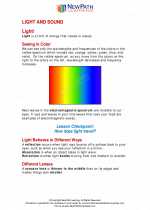 Light and sound
Light and sound  Worksheet/Answer key
Worksheet/Answer key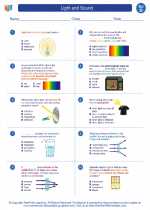 Light and sound
Light and sound  Worksheet/Answer key
Worksheet/Answer key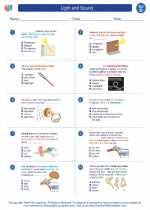 Light and sound
Light and sound  Worksheet/Answer key
Worksheet/Answer key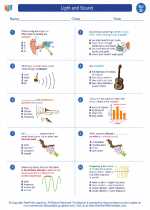 Light and sound
Light and sound  Vocabulary/Answer key
Vocabulary/Answer key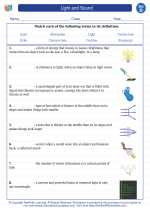 Light and sound
Light and sound  Vocabulary/Answer key
Vocabulary/Answer key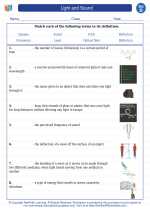 Light and sound
Light and sound  Vocabulary/Answer key
Vocabulary/Answer key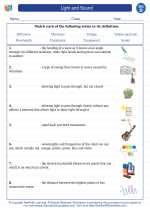 Light and sound
Light and sound 

 Worksheet/Answer key
Worksheet/Answer key
 Worksheet/Answer key
Worksheet/Answer key
 Worksheet/Answer key
Worksheet/Answer key
 Vocabulary/Answer key
Vocabulary/Answer key
 Vocabulary/Answer key
Vocabulary/Answer key
 Vocabulary/Answer key
Vocabulary/Answer key

The resources above cover the following skills:
PHYSICAL SCIENCE (NGSS)
Waves and their Applications in Technologies for Information Transfer
Students who demonstrate understanding can:
Develop a model of waves to describe patterns in terms of amplitude and wavelength and that waves can cause objects to move.